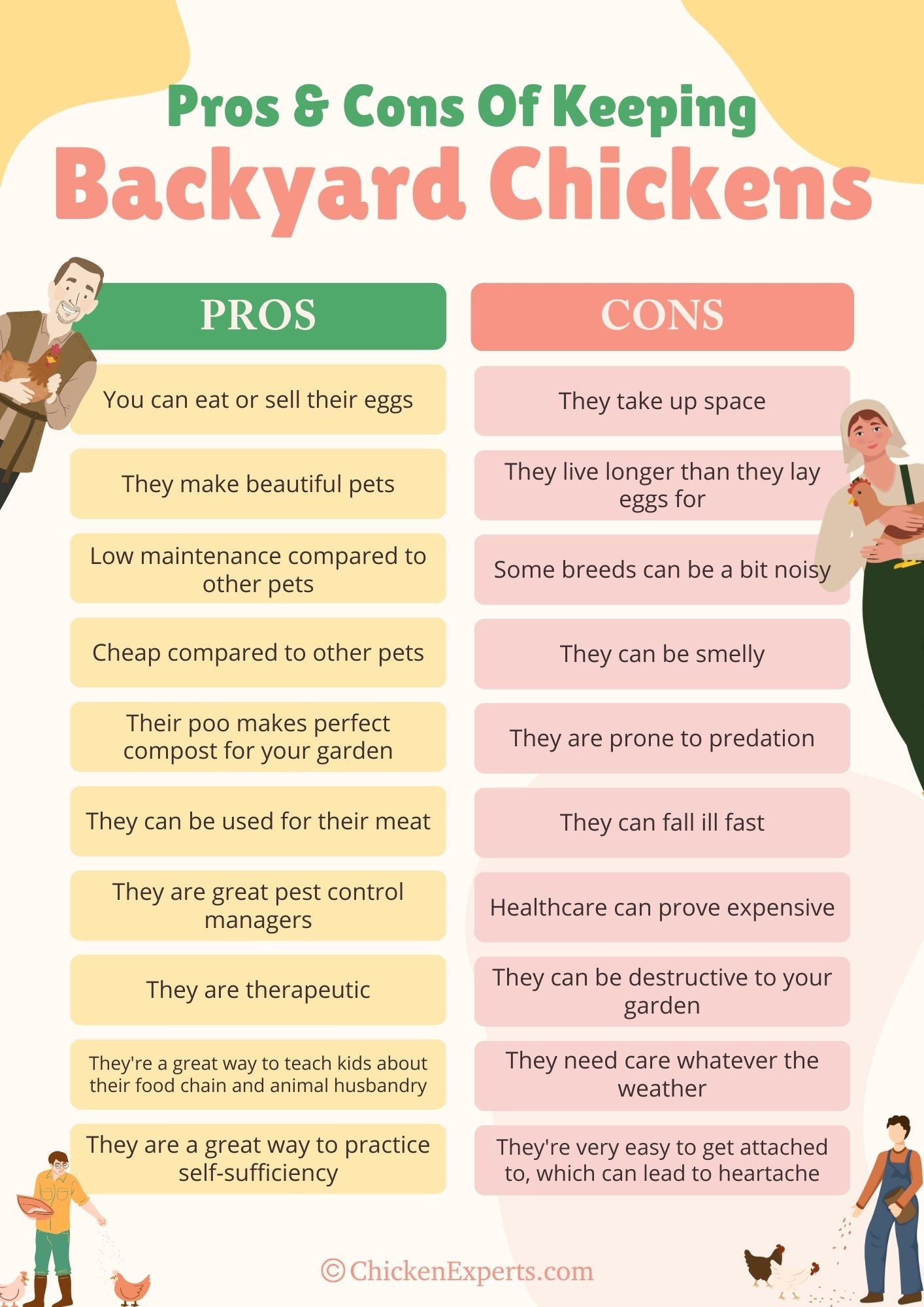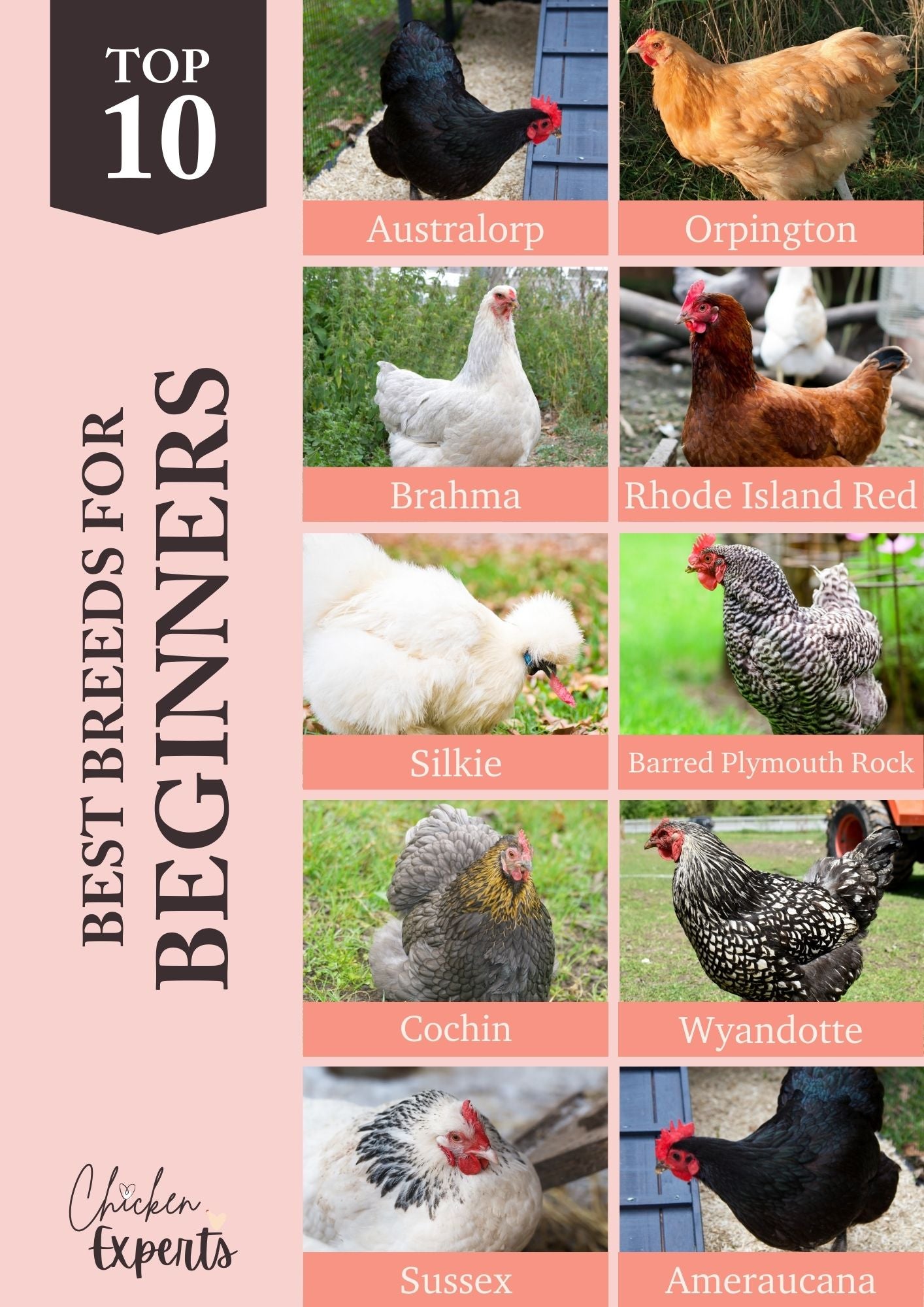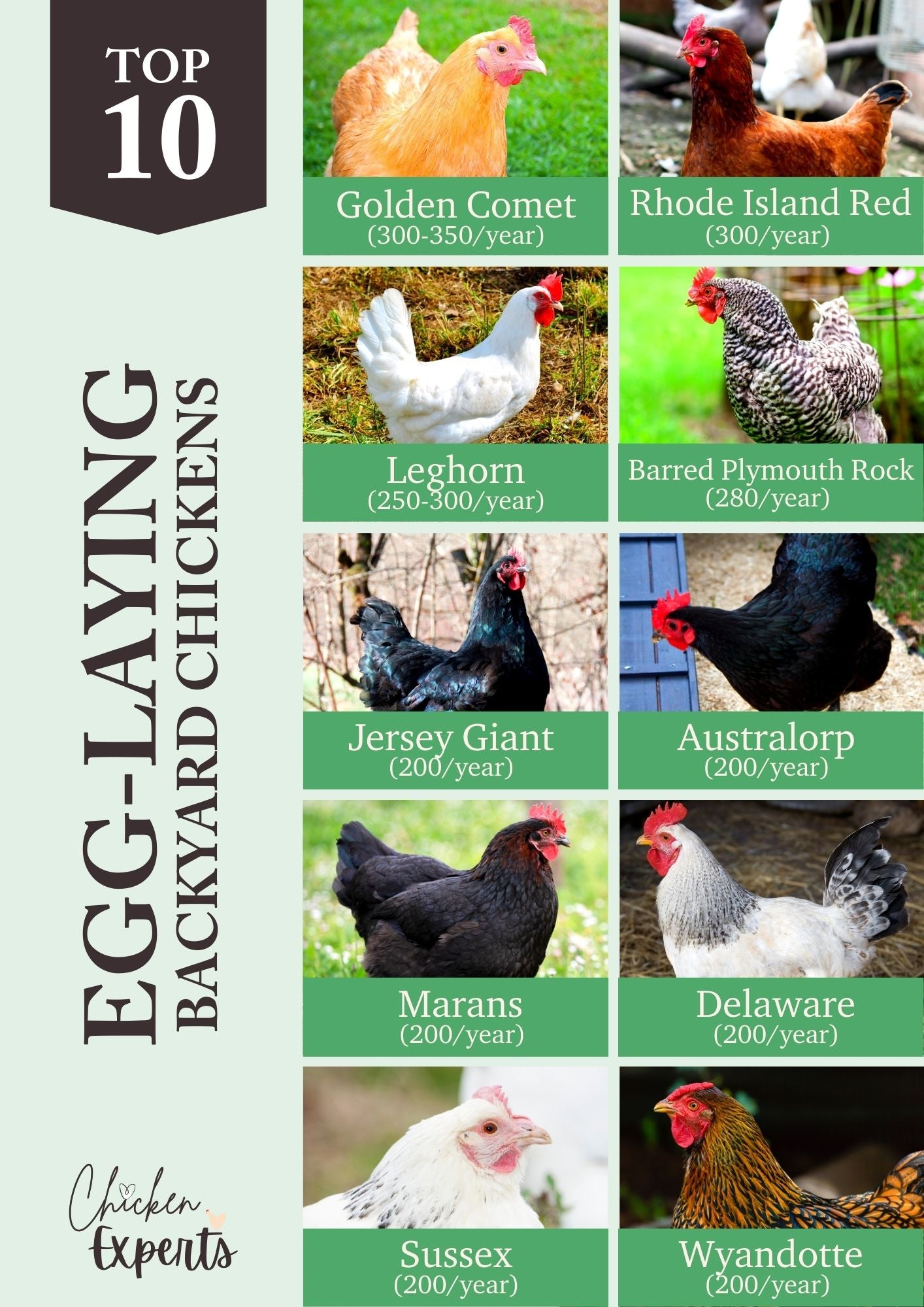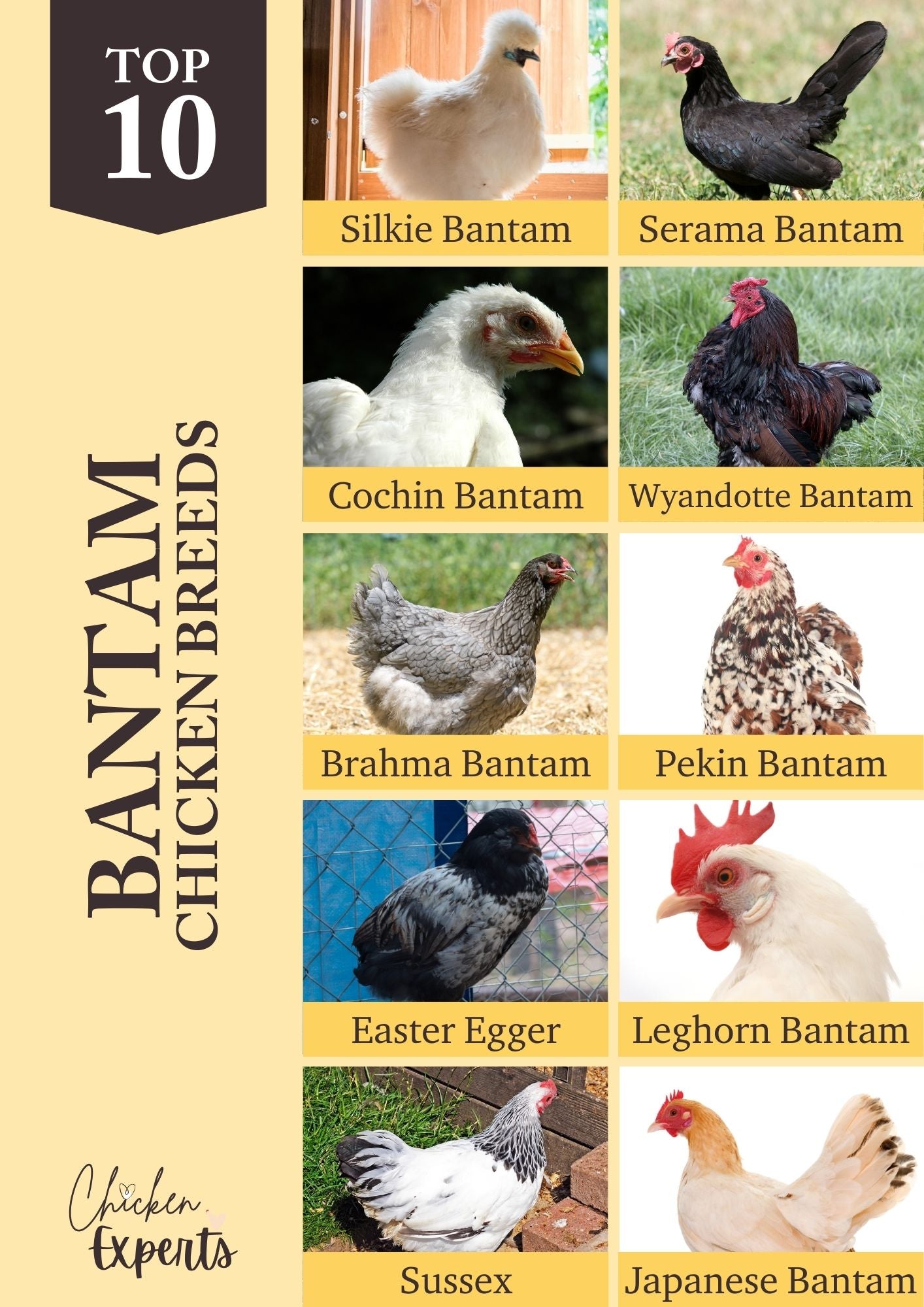
I’ll admit it. I surprised myself with just how rewarding keeping chickens is. I knew I’d love them, and was excited about the morning egg bounty, but I never expected them to become such a big part of our lives. I didn’t think chickens were ‘real’ family pets. They SO are!
We love our ladies and their unique (sometimes bizarre) personality traits, and keeping chickens is something we’ll always do. Another thing I didn’t realize when I started out keeping chickens was how much of a learning curve keeping chickens would be.
Chickens bring a lot of joy, entertainment, laughs, eggs, and cuddles (except for MegHen Marckle…she is not into affection). Chickens will also demand your time, squabble, make a mess, and worry the socks off you when they’re poorly.
There’s no perfect way to keep chickens, just as there’s no perfect way to train a dog or raise a toddler. Even if there was, few of us would have the time, the money, or the patience to do it perfectly.
My advice would be not to sweat the small stuff - but there are essentials you need to know, and ways to make the experience more fun - which I’m about to cover. You’ll be learning about your flock all the time, facing new challenges, trialing new things, and reaching out for advice.
New keepers always hit the shops with excitement preparing for their new backyard buddies, but your chickens don’t need extravagant coops or automated feeders, what they DO NEED is you! They need you to know how to care for them.
I can’t think of a better way to prepare for poultry parenthood than investing in your chicken husbandry knowledge. Engaging in a reputable chicken-keeping course BEFORE you bring your chickens home will save you the cost and heartache of poor choices and missed symptoms. It’s a bit cliché, but it’s true: prevention is better (and cheaper) than cure.
Before you start browsing cute baby chick pics, let’s get serious for a second. Chicken keeping is a long-term commitment, so you need to be sure that it’s the right move for you and your family, and that you are the right people for your poultry!
The questions we’re about to answer together are:
Q: CAN I & SHOULD I KEEP CHICKENS?
- The law, the commitment, and five questions to ask yourself.
Q: 12 THINGS YOU’LL NEED TO KEEP CHICKENS
- Preparing for keeping chickens, no overspending - strictly the essentials!
Q: HOW TO KEEP CHICKENS
- The reality of keeping chickens: Is it hard work? Are they smelly or noisy? What will it cost? Can you do it on a budget? What do they eat? Where should you buy chickens?
Q: THE PROS AND CONS OF KEEPING CHICKENS
- The ups & downs of keeping chickens, from the people who know!
Q: WHICH CHICKENS TO KEEP?
- How many chickens should you buy? Which type? What breed? Should you buy hatching eggs, chicks, or chickens?
….PLUS, the TOP 10 BREEDS for beginners, friendly breeds, egg layers, and bantams.
CAN I KEEP CHICKENS?
Before you get cracking with your chicken-keeping plans, you’ll need to make sure you’re allowed to keep livestock where you live.
In the US, some counties don’t allow chicken-keeping at all (booo) whilst others allow hens but not noisy roosters. Some counties have limitations on the number of chickens you can keep, and others have hoops you’ll have to jump through and boxes you’ll need to tick to secure a poultry permit. Don’t let that put you off though, they’re worth a bit of paperwork.
Lots of counties do allow chickens but are strict about how they’re housed and don’t allow free ranging. This is usually to manage the spread of disease and avoid damage to other people’s properties. If this is the case for you, then you’ll need to be egg-stra careful to pick a chicken breed that does well in confinement.
In addition to county rules, you might also be restricted by local bylaws, neighborhood agreements, or your lease terms.
If you CAN have chickens – that’s great – but SHOULD you?
SHOULD I KEEP CHICKENS
Are you ready to take on poultry parenting? You should never commit to any pet without giving it some serious thought, so a little honest soul-searching is in order before you place an order for six hatchlings.
If you can’t honestly answer ‘yes’ to these five questions, then it might not be the right time to bring chickens into your home.
1. Can you commit to keeping chickens?
It's important to understand how long chickens live forbefore committing to your own coop troop. Chickens live for 5 – 10 years depending mainly on their breed and care. Most popular chicken breeds live for between 6 and 8 years, so inviting them into your family means making a long-term commitment.
Eggs are bound to be a big part of your chicken-life vision, but some hens live for 3-4 times as long as they will lay for. Are you happy to give your hens a happy retirement home, too?
2. Can you afford to keep chickens?
Chickens are very affordable compared to other pets, but it still costs money to keep a coop full of feathery inhabitants happy and well. Buying a chick is cheap as chips compared to the cost of keeping them.
There are start-up costs like buying your coop, run, and feeding equipment, and ongoing costs like chicken feed which costs around 10 USD a month per chicken. There will be unexpected costs like emergency healthcare to consider and, if you’re raising baby chicks, you'll need at least a special starter feed and a heater.
Keep reading for the average cost 💲 of keeping chickens…
3. Do you have the time to keep chickens?
Are you an early bird, or are you always in a rush? I’m not judging...just asking! Chickens won’t need daily walks or training classes, but they will need regular feeding, checks, and care. If you can't stand morning chores or mess, then chickens aren't going to be your thing.
I’ve laid out the reality of keeping chickens for you later in this blog…
4. Do you have the space to keep chickens?
Each standard-sized chicken needs about 4 square feet of coop space and 8 square feet of exercise space, so a small flock of 3-4 hens will need at least a 12-square-foot coop and 24-square-foot run.
Please don’t be tempted to squeeze too many ickle chicks into a space that won’t be big enough when they’re fully grown. They’ll get messy, stinky, and argumentative. Poultry politics can get nasty fast when there’s no space for anyone to take time out.
If you’re just starting out, but you have lots of room, then upsize your coop if you can. Better to have room for your flock to grow, since you’re bound to fall in love with the little feather bombs and end up wanting more.
Before you add a coop to your online cart, decide on your choice of breed(s). Giant chicken breeds will need more space for those ample booties. If space is tight bantam chickens make great backyard chickens since they only need 2 square feet of coop space, and 4 square feet of run space each. That’s half the space of a bigger-bottomed bird!
5. Are chickens right for everyone in your family?
It's super-duper important to have a support network when you take on chickens. The whole family needs to be on board to make chicken keeping fun.
There’s more than just help with the day-to-day chores to consider. Who will watch them if you go away on holiday? Are your neighbors averse to noise? Will the cats be cool with the new additions?
If any of your family members have respiratory conditions or autoimmune deficiencies, you should run your new pet plans past your GP, too. Chickens do come with dust, dander, and mites.
Was it a resounding YES for all five questions? Yeay! Let’s get cracking with keeping chickens…
12 THINGS YOU NEED TO KEEP CHICKENS
There are endless products on the market, from coops with automatic doors and curtains to heated waterers, beak guards, and bumblefoot boots. Don’t get carried away…or freaked out.
Aside from a good sense of humor, there are some essentials you’ll need to have ready before you bring your new feathery family home:
-
A Coop
Every chicken needs a home. Even free-range chickens need somewhere safe and dry to go at night.
<Chicken coops ><link to chicken coop blog> come in all shapes, sizes, and styles. You needn’t even buy one: you can build your own by repurposing a shed or kiddies' playhouse. So long as your chicken coop provides shelter from the weather and protection from predators then your chickens will be more than happy with your efforts.
<Tell me what I need to know about chicken coops!><link to chicken coop blog>
-
A Run
Unless your chickens can free-range all day, then they’ll need a secure run attached to their coop. This can be as simple as four walls made of chicken wire, but you’ll need to make sure the sides are tall enough to stop flighty chicken breeds from getting out, and persistent predators from getting in.
-
Nest Box
Whether you’ll need nest boxes straight away or not depends on how old your new hens are. You’ll need to ensure you have your nest boxes in place before your girls are old enough to lay their first eggs.
Tell me more about nesting boxes!
-
Bedding & Litter
You’ll need to line your chicken’s run with litter and their nesting box with bedding. There are all sorts of materials available and recycling options to consider.
-
A Heat Source
Young chicks will need a permanent heat source until they have their big-bird feathers, and adult chickens will benefit from extra warmth in cold weather. A safe and adjustable heat source will keep your hens happy, well, and laying. Cold hens won’t cough up the goodies!
-
Water
Chicks can drink 3 times their body weight in water. You’ll need easy access to water 💦 set up.
-
A Waterer
Chickens have no table etiquette at all. They’re messy, and they’re careless. A good choice of waterer (or drinker) will make the difference between serving up a fresh drink or bacteria broth.
The perfect chicken waterer needs to hold enough water for your thirsty flock whilst keeping their water contained, fresh, clean, and cool (but never frozen). You need to be able to lift it, fill it, and clean it. It also needs to fit into your coop, and into your hectic day.
Here’s a speedy guide on what to look out for with chicken waterers.
-
Chicken Feed
90% of your chickens’ diet will be the chicken feed that you serve up. The type of chicken feed that you need will change as your chickens grow. Chicks, pullets, laying hens, and roosters all need different nutrients.
There’s an appetizer of chicken feed information in this blog, or you can indulge in a banquet of chicken feed knowledge with my chicken feed blog, and even learn how to make your own chicken feed.
-
A Feeder
A decent <chicken feeder> will save you time, mess, money, and sick chicks!
-
Supplements
Chickens benefit from certain supplements. They’re not egg-scatly essential, but to give your feathery friends the best quality of life (and you the best quality of eggs), then I’m counting them as ‘almost essential’ for your chicken’s nutrition.
-
Grit
Chicken grit is a dietary supplement that all chickens need. It’s not food, it’s chicken dentures. Grit is a tool to aid your chicken’s digestion since they don’t have teeth. Free-range chickens will probably do fine without additional grit, but young chickens and those kept in a run during the day should be offered supplementary grit.
-
Help & Advice
Last but NOT least. Don't wait for something scary to happen to decide on your emergency plan. Line up a great vet and join a chicken community like Chickenpedia. When you have questions or worries, you'll have instant, unlimited access to chicken-care courses, poultry peers, expert information, and one-to-one support. All at a fraction of the cost of a vet trip!
“SO GOOD! I live 6.5hrs from town so getting the advice from the eggsperts when one of my hens was breathing oddly was a life saver! I've recommended you to my neighbor and he too is now a member. Keep up the great work!” (Patricia – Chickenpedia Subscriber)
HOW TO KEEP CHICKENS
WHAT KEEPING CHICKENS REALLY INVOLVES
Is It Hard Work Keeping Chickens?
Keeping chickens is fun and easy if you prepare well and stick to a routine.
The better clued up you are, the cheaper and easier chicken keeping will be. After all - everything is easier when you know how!
Understanding what your chickens will need and preparing for common health issues will save you so much time, and a fortune on unnecessary veterinary visits and late-night panic purchases. More importantly, knowing how to deal with issues confidently can save your feathery family from suffering and your human family from heartache.
Sure, you can hit search mode when something crops up – but would you know the early signs of an impacted crop, for egg-sample? Knowing what to watch out for before problems develop makes the difference between prevention and cure.
How Much Does It Cost to Keep Chickens?
Chicks cost around 2-3 USD each to buy, and 150 USD per year to keep and care for.
The price of chicks and chickens will vary with their breed, bloodline, and age. If you want to skip the baby stage and get cracking with your two-eggs-daily diet straight away, then a laying hen is the way forward. Laying Hens cost 20-50 USD, but you’ll get egg-sactly what you’re expecting: no runts or roosters.
Getting set up as a beginner could cost around 500 USD. This should cover all your eggy-ssentials like a coop, run, feeders, waterers, and chicks.
Keeping backyard chickens will cost 5 -10 USD per hen per month. This should more than cover their food and board.
There will be some one-off costs, and annual costs such as vaccinations, healthcare, replacing a broken heater, or repairing your fencing.
Can You Keep Chickens on A Budget?
Keeping chickens is a sustainable way to live. It makes sense to make it affordable.
If you’re handy with a hammer and open to a bit of DIY you can <make your own coop>, chicken waterer, and even your chicken feed. Chicken bedding can be recycled wood chippings, newspapers, or hay.
If you’re open to whatever breed needs a home or rescuing ex-battery hens, then you’ll be able to fill your flock with freebies. Chickens can often be found free of charge if someone has too many for their coop or is navigating chicken politics.
Are Chickens Smelly?
Chickens aren’t smelly, but their butts are! If you don’t keep your chickens’ environment clean then it will get smelly, attract flies, and even rats. If your chickens can’t avoid standing or sitting in their own mess, then they’ll start to stink too.
Your chicken coop will need cleaning out weekly. That means scooping their poop, replacing their bedding, and cleaning their waterers and feeders.
Depending on the personal hygiene standards of your little lads and ladies, you might have problem spots to clean monthly. ‘Deep bedding’ is a popular way of minimizing chicken chores, where bedding is rotated and overlaid regularly so you shouldn’t need to deep clean your coop more than twice a year.
Are Chickens Noisy?
A chicken’s cackle is about 60 decibels. That’s nowhere near as loud as a dog’s bark, it’s about the same as two people having a conversation. But if you have a lot of chicken ‘talking’…
With smaller backyard flocks it’s not likely that they will irritate you or your neighbors too much. It certainly shouldn’t be deemed antisocial.
Hens cackle when they lay an egg, or sometimes when their coop-mates are laying an egg. I think they just want to be appreciated for their efforts. Can you blame them? Those eggs can be big! Hens only lay once a day, so it’s not a constant celebration.
Roosters crow to alert their ladies to danger but going rooster free won’t necessarily avoid this noise. If you don’t keep a rooster, then your alpha hen might well take on this role.
What Do Chickens Eat?
90% of your chickens’ diet will be made up of chicken feed. Homemade or store-bought, it doesn’t matter. What matters most is what it’s made of. So long as you match the protein and calcium levels of their feed to the stage in your feathery friend’s life, then you’re doing great!
Stage-specific chicken feeds include starter feeds, grower feeds, and layer feeds. You can get all sorts of varieties of feed to suit poultry pensioners and molting hens.
Dish me up some more information about chicken feeds!
How Much Do Chickens Eat?
Most chickens eat half a cup (¼ lb) of chicken feed a day.
The amount your guys and girls gobble up will depend on their age, activity levels, and breed. A Jersey Giant will demand a much bigger portion than a Silkie bantam.
Your chickens will tell you how much they want to eat. Free feeding is the most popular chicken feeding system: feeding them more than they’ll need, so they never go hungry. Chickens rarely overeat and obesity is only an issue if they’re broiler breeds or unable to exercise.
Being able to eggs-timate how much feed to buy, or to make, can really help with budgeting
Where Should I Buy Chickens?
You can buy chickens from online hatcheries, feed stores, local breeders, farms, or friends. You can often pick up a poultry pal for free from rescue centers and other keepers who are managing their own flocks.
Before you buy your chicks, check out my baby chicken blog for advice on:
Picking a healthy chick 🐣
Whether to buy chicks, hens, or hatching eggs
Ex Battery Hens as Backyard Chickens
10 questions to ask your breeder
Tell me more about shopping for chickens!
THE PROS & CONS OF KEEPING CHICKENS:

Reasons to say YES to Keeping Chickens
Dogs don’t deliver breakfast, but hens do! I mean, they won’t poach their eggs or pop the bread in the toaster, but they’ll deliver the produce! Chickens lay yummy scrummy eggs to eat or sell, but there’s more to chickens than just their eggs:
- Chickens make beautiful pets with fun and quirky personalities
- Chickens are low maintenance compared to other pets: they’re happy home alone all day: perfect for busy families
- Chickens are cheap to keep compared to most other pets
- Chicken poop makes the perfect compost for your garden
- Chickens are great pest control managers so can help your garden prosper
- Pets are therapeutic: pets that bring you outdoors are great for your health and wellbeing
- Keeping chickens is a great way to teach kids about their food chain and animal husbandry
- Chickens are a great way to practice self-sufficiency and lead an eco-friendlier lifestyle
- They lay eggs! I know. I said they’re not all about the eggs. But how can you not mention eggs as a benefit of keeping chickens? Come on?!
Reasons to say NO to keeping chickens
- Chickens can be noisy: the roosters and hens!
- Chickens can be smelly, but only if they aren’t cleaned out regularly
- Chickens are prone to predation, which can lead to heartache
- Chickens can be destructive
- Hens live for longer than they lay eggs
Pros & Cons of Keeping Chickens, According to Homestead Chicken Keepers:
“The best bit about keeping chickens is how excited they are to see me. It’s almost a stampede to the door to get to me” (Robin Loftis)
“I really love how they take themselves to bed a little after sunset. I say goodnight to them and close the door. So much easier than getting the kids to bed! I hate dealing with their poop!” (Beverly Joly)
“My favorite thing is watching them run to me. I often sing ‘The Race is On’ when they come running over for snacks. The worst bit of keeping chickens is when the little ninjas sneak into my flower beds!” (Sherry Hinkle-Carlson)
“Next to cleaning their coop, my least favorite thing is losing one or many. I love my chickens so much and I get really sad when one passes away.” (Julie Wislon-Cogburn)
WHICH CHICKENS SHOULD I KEEP?
Now you know what’s involved in keeping chickens – it’s time to pick that chick!
How Many Chickens Should I Keep?
How many chickens you bring home should be based on how much space you have to offer and how many eggs you’re hoping to harvest.
If you want everyone in your home to enjoy an egg a day, you could go for one productive breed like an Australorp, Marans, or Easter Egger per person, or three less productive chickens for every two people.
Do I Need to Keep a Rooster?
If you don’t want to breed chicks at home, then you don’t need a rooster. Roosters are often kept as protection for hens, but there are alternative ways to protect your hens against predators.
Roosters can make great pets though and are often available to rehome. Don’t rule out these boys! Roosters can be a valuable addition to your flock.
Which Type of Chickens Should I Keep?
My advice would be don’t start by looking at different chicken breeds. I know that might sound odd, but there’s an important step to picking chickens that often gets overcluked:
Think about what type of chicken you really want.
Chickens are categorized in lots of different ways, most commonly, by their purpose:
Ornamental chickens just look fabulous, whereas meat birds and layers were bred to do a job (or two jobs, in the case of dual-purpose breeds).
When most of us think of chickens, we group them by their temperament, size, and looks. You might want a friendly type of chicken, a fluffy chicken, a low-maintenance chicken, or a reliable egg layer.
To narrow down your perfect-poultry-pal search cluck here to learn about all the different types of chicken and meet the top 10 breeds…whatever your type!
Which Chicken Breeds are Best to Keep?
There are 463 recognized chicken breeds in the USA. The perfect breed for you? That all depends on what you’re clucking for.
You can’t afford to pick a chick based only on her looks when you’re entering a long-term relationship.
Some fancy breeds are higher maintenance than others, some breeds are noisy, and some need a lot of space. Some breeds lay lots of eggs, some lay blue eggs, and some are so maternal they’ll raise any egg you pop under their booty. Some chickens don’t mind the cold, some can’t abide damp conditions. You catch my drift.
Haven’t got time to research 463 chicken breeds? Who does? Head to my comprehensive, but quick, chicken breeds blog for an introduction to the very best of chicken breeds.
(…I shouldn’t have assumed. Perhaps you do fancy perusing all of the chicken breeds recognized by the American Poultry Association, you can hop to it here.
Here are just a few ‘best-of’ breeds to get you started…
Top 10 Chicken Breeds for Beginners

When you’re starting out it's sensible to take on hardy, low-maintenance, and easy-going chickens.
1. The Australorp Chicken
2. The Orpington Chicken
3. The Brahma Chicken
4. The Rhode Island Red Chicken
5. The Silkie Chicken
6. The Barred Plymouth Rock Chicken
7. The Cochin Chicken
8. The Wyandotte Chicken
9. The Sussex Chicken
10. The Ameraucana Chicken
Top 10 Chickens for Egg Production

Nothing will impact how many eggs your hens will lay more than how you care for them. The best laying breeds in the world won’t lay if they’re malnourished or anxious. There are some breeds, and popular hybrids, who lay more than others when they’re well cared for:
- Golden Comet Chicken @ 300 – 350 eggs a year
- Rhode Island Red Chicken @ 300 eggs a year
- Leghorn Chicken @ 250-300 eggs a year
- Plymouth Rock Chicken @ 280 eggs a year
- Jersey Giant Chicken @ 200 eggs a year
- Australorp Chicken @ 200 eggs a year
- Marans Chicken @ 200 eggs a year
- Delaware Chicken @ 200 eggs a year
- Sussex Chicken @ 200 eggs a year
- Wyandotte Chicken @ 200 eggs a year
Top 10 Friendliest Chicken Breeds

If you’re lusting over chickens as pets and not just egg vendors, then their temperament is going to be just as important – if not more important – than their looks or laying abilities.
- Silkie Chicken
- Rhode Island Red Chicken
- Buff Orpington Chicken
- Sussex Chicken
- Cochin Chicken
- Wyandotte Chicken
- Jersey Giant Chicken
- Easter Egger Chicken
- Faverolles Chicken
- Austrolorp Chicken
Top 10 Bantam Chickens

Bantams are cute, miniature varieties of breeds and are perfect as backyard chickens. They need less space, so you can have a larger flock than you might have room for if you pick a standard-sized breed.
- Silkie bantam
- Serama bantam
- Cochin bantam
- Wyandotte bantam
- Brahma bantam
- Pekin bantam
- Easter Egger bantam
- Leghorn bantam
- Sussex bantam
- Japanese bantam
‘CHEERS’ TO KEEPING CHICKENS!
I’m hoping you’ve decided that your family is about to get bigger, and featherier! I’m egg-cited for you. Cheers to keeping chickens!
I stand by my earlier advice that the most important preparation you can do for keeping chickens is to learn all about their needs. But, even with the best will in the world, we can’t prepare for everything life throws at us.
One of the toughest parts of keeping chickens is that they do get poorly.
¾ of new chicken keepers face a scary moment in the first 12 months of keeping chickens that they have no idea how to handle. At least one of your chicks will scare the life out of you by playing dead or wheezing like a chain smoker. You might spot something nasty crawling on your cockerel, or a case of wry neck might have you running to the vet in a flap.
You will always have questions and concerns but knowing where to turn when the going gets tough will help you act fast and regain control of your flock.
Chickenpedia’s chicken care courses are designed so that you can dip in and out as you need to. As well as a lifetime’s access to review and re-sit courses, you’ll find great tips, step-by-step guides, and handy downloads.
For me, one of the hidden gems of joining the Chickenpedia community is the fast access to expert advice. Within a matter of minutes, you’ll have the answers you need, the guidance to get nurse poorly chickens back to health, and no expensive vet bills. Phew.
CALLING ALL CHICKEN KEEPERS – WHAT ARE YOUR THOUGHTS?
Any top tips, must-haves, or recommended breeds? Share your chick tips in the comments!











Leave a comment (all fields required)